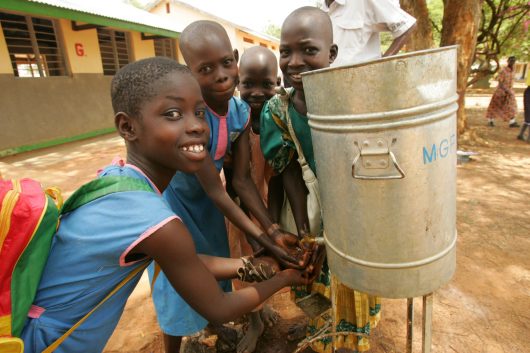Global Soap Project: Changing the World with Suds
 Hygiene-related illnesses cause more than 1.8 million deaths worldwide and the Global Soap Project (GSP) is taking a stand to reduce this number by taking advantage of the 2.6 million bars of soap are thrown away in hotels daily.
Hygiene-related illnesses cause more than 1.8 million deaths worldwide and the Global Soap Project (GSP) is taking a stand to reduce this number by taking advantage of the 2.6 million bars of soap are thrown away in hotels daily.
Founder Derreck Kayongo was inspired to provide hope to refugees around the world with his own experience as a refugee when he fled a civil war in Uganda for the U.S. at age ten.” Ask any refugee anywhere in the world, they’ll tell you that they lose dignity right off the bat,” Kayongo stated in a passionate talk hosted by Keppler Speakers.
Since its inception in 2009, GSP has been improving the lives of people in 32 countries by distributing clean soap and educating communities on hygiene. The life-saving organization targets victims of disaster, refugees, the homeless and mothers and children living in extreme poverty. The goal? Making an impact on global health.
The Global Soap Project has implemented educational programs providing access to information otherwise unattainable, such as how and when to use soap and its importance to sanitation, hygiene and long-term health. The GSP and its partner, Clean the World, collects unused soap from hundreds of hotels that have united with the organization.
Then, GSP recycles and redistributes them, with help from organizations such as the Centers for Disease Control and Prevention (CDC), Partners in Health and CARE.
The organization has created a micro-loan program that offers financial and training support to local, small-scale soap makers. To support this initiative, hotels send boxes of unused soap to GSP, where they are recycled, inspected and given to NGO’s for shipment to affiliations in impoverished areas.
NGO’s are not charged for the provided soap. After distribution, NGO partners relay reports of successful dispersion and educational programs. In Kenya, the Global Soap Project has had a sizable impact. The organization distributed soap to more than 300 families in Lindi, located within one of the largest slums in Africa. GSP also allocated soap to 1,320 students in Kenya.
According to the GSP, a head teacher from a receiving school, commented on the organization’s success and expressed gratefulness. He stated, “Most of my kids know how to use soap after toilet, after eating, after playing, after classes, and you will find them with soap in their hands and in school compound. So thank you HHRD and GSP for this so unique gift, because it has brought a big impact in our school.”
Within the international community, world health has been a topic of concern. The World Bank has worked with organizations such as WHO and UNICEF gathering the most recent information about hygiene in developing and impoverished areas.
According to the World Bank, hygiene and hand washing have an immense impact on the quality of health and the ability to avoid deadly sicknesses like diarrhea and pneumonia. With over 4 billion cases of diarrhea per year, about 1.6 million of those are found in children under the age of five.
The GSP’s ideals are solidified by the World Bank, as it is suggested that, “public health promotion and education strategies are needed to change behaviors.” School health programs are imperative in ensuring that students have sanitation standards that can be translated into community principals.
The organization promotes involvement by accepting donations and volunteers and makes it easy for hotels to contribute. It has grown exponentially, expanding as a global leader in health promotion and implementation and continues to serve around the world. “Our soap doesn’t just mean health,” Kayongo says, “it means hope.”
– Kimber Kraus
Photo: Flickr
